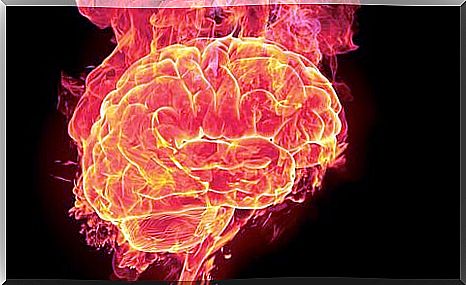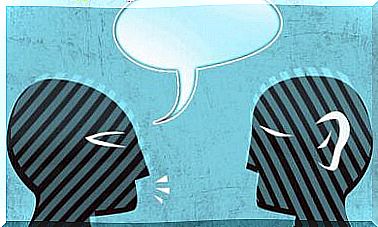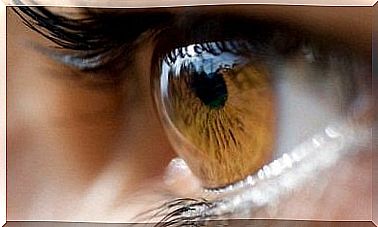Brain On Fire, Link Between Inflammation And Depression

With the brain on fire we refer to a theory that relates depression to the inflammatory process. According to several studies, large numbers of people diagnosed with severe depressive disorder have higher levels of proinflammatory cytokines, which appear to impair brain function and mood.
In 2006, researchers Charles, Capuron and Miller published the results of their study on the link between depression and inflammation in the journal Cell . The burning brain hypothesis has been known for decades. It is, in fact, directly connected with the so-called malaise theory of depression.
For some time, Dr. Bruce Charlton, of the University of Buckigham, has been trying to define and prove this hypothesis through research and analysis, such as those published in 2000. He presents clinical cases of patients with a diagnosis of depression that would have a trigger of a clear nature. biological.
There are those who argue that this condition can be linked to lifestyle, nutrition or even environmental pollution. However, other voices in the world of science relate it to how the body reacts to environmental stressors or concerns.
Therefore, a physiological response would be produced with which to face the presumed threat. This explains the inflammatory reaction of the immune system that sometimes acts as our worst enemy, weakening and fatiguing us.

What is the burning brain theory based on?
The hypothesis that relates depression to inflammation has taken on different names over time. On the one hand, the theory of the malaise of depression; on the other, that of the brain in flames. Both ideas share some points which, as we well know, are based on an extensive scientific bibliography.
The reason why people began to think about a link between severe depression and the immune response is related to the high number of people who did not respond to the psychological treatment and pharmacological approach. Where was he wrong? Beginning in 2000, the word “inflammation” began to be a recurring variable among neurologists and psychiatrists.
Let’s see, therefore, on what premises the theory of the brain in flames was formulated.
Mechanisms that explain the link between inflammation and depression
When our body identifies the presence of a virus, it generates an inflammatory response to eradicate this internal enemy. It therefore triggers an inflammatory process.
The Burning Brain Theory assumes that in the event of pressures, stressors, fears and anxiety, our body employs a similar strategy.

When our body is forced to fight this internal pathogen, it uses white blood cells and cytokines, powerful proteins able to coordinate the response of the immune system.
As we anticipated at the beginning of the article, a large number of people with severe depression were found to have a higher than normal level of proinflammatory cytokines.
A study conducted by researchers from the New Jersey Department of Epidemiology ( Janssen Research & Development ) analyzed 14,275 patients diagnosed with severe depression. An elevated level of CRP (C reactive protein), a blood marker that reveals the presence of an inflammatory process, was found in 60% of cases .
Cytokines can remain in the bloodstream for months, which can cause neuroinflammation. Other problems then arise such as physical pain or weakness.
How can depression caused by inflammation be combated?
First of all, it is worth clarifying an important aspect: not all cases of depression are the same and not all forms of depression are caused by an inflammatory process. Only in the event that psychological therapy and drug treatment do not find improvements, the possibility of the theory of the brain in flames can be evaluated.
Scientists and the pharmaceutical industries are faced with the challenge of developing new drugs for this type of condition. Meanwhile, the following strategies have been successful in treating depression caused by inflammation:
- Exercises to reduce stress
- Breathing and relaxation techniques
- Physical activity
- Anti-inflammatory diet (reducing the consumption of sugars, salt, white flours, industrial food, saturated fats, as well as avoiding harmful habits such as alcohol and smoking)
- Nutritional supplements based on Omega 3 fatty acids and vitamin D

Many experts are convinced that the trigger for this depressive condition is almost always chronic stress. If we were able to manage and face this debilitating psychological state with better resources, we would avoid the inflammatory processes and the alteration of the immune system that we have talked about. It is therefore important to seek the help of specialized professionals.









